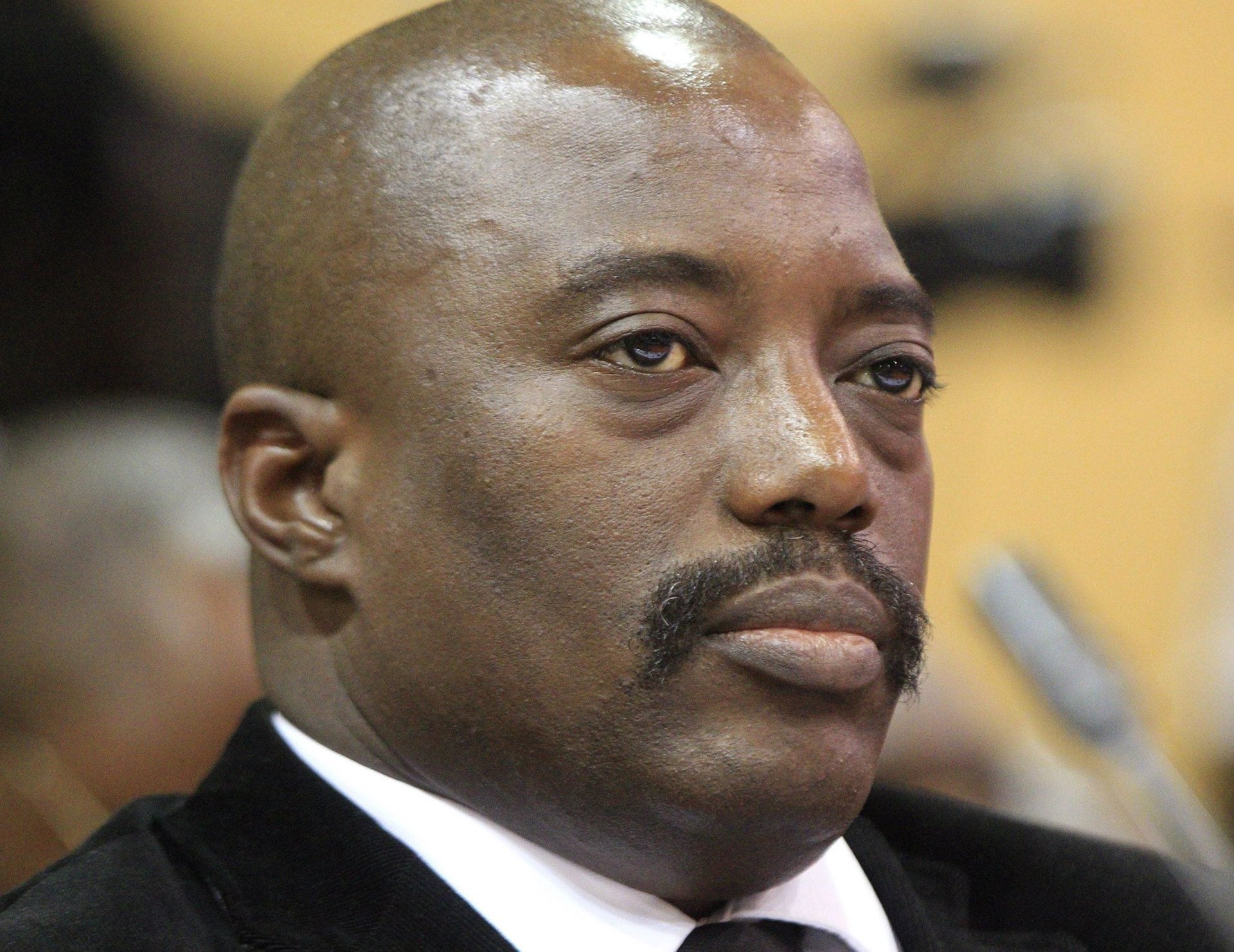DR Congo’s Joseph Kabila is taking a slippery path to a third term
The Democratic Republic of Congo is renowned for its wealth in natural resources such as copper, cobalt and gold but the country has a crippling scarcity of at least one commodity: trust in the Congolese president. Joseph Kabila has led the vast country since 2001 after his father was shot by a bodyguard and is constitutionally required to step down at the end of 2016 when his second term comes to an end.


The Democratic Republic of Congo is renowned for its wealth in natural resources such as copper, cobalt and gold but the country has a crippling scarcity of at least one commodity: trust in the Congolese president. Joseph Kabila has led the vast country since 2001 after his father was shot by a bodyguard and is constitutionally required to step down at the end of 2016 when his second term comes to an end.
One only need to take a look at neighboring countries Burundi, Rwanda and Congo-Brazzaville, however, to see that relinquishing power when the constitution dictates isn’t in vogue currently. On the streets, on social media, in the ranks of the opposition, many in the DRC are convinced that Kabila wishes to emulate the likes of Rwanda’s president Paul Kagame and Congo-Brazzaville’s president Denis Sassou Nguesso by clinging to power into 2017 and beyond. For various reasons constitutional change is currently out of Kabila’s reach and the word on everyone’s lips is ‘glissement’, the French for ‘slippage’ or ‘sliding’.
‘Glissement’ captures the wildly popular notion that the president is actively working to impede the smooth working of the electoral process (which would put him out of a job) and use the extra time to engineer a constitutional amendment (which would allow him another crack at retaining it). All of which makes the latest political skirmish between Kabila’s government and the most prominent opposition parties especially interesting since the latter are playing a dangerous game. They are running the risk of doing the president’s dirty work for him.
At the end of November the monosyllabic Kabila appeared on Congolese televisions to make one of his infrequent and wooden pre-recorded addresses. He told his nation that he had decided to organize an ‘inclusive national political dialogue’. The president proposed that the government, opposition, civl society and religious groups should come together and reach a consensus on key issues such as the electoral calendar, updating the register of voters, and how to finance the elections.
The problem is that all significant opposition parties have refused to participate. In fact, the reaction of the two main anti-Kabila coalitions was so strident that they jointly accused the head of state of ‘high treason’ and attempting ‘a constitutional coup d’état’. One leading rival has previously dismissed a national dialogue as a ‘trap’ into which his party will not fall.
Why such a fevered response? After all, Kabila’s dialogue might seem sensible and timely, perhaps even magnanimous. In short, other actions undertaken by his government during 2015 have called the president’s good faith into question. In January his supporters tried to pass a law requiring the country to hold a census before elections, a demand the opposition understood would take several years in the enormous and poorly connected DRC. Security forces killed at least 40 in the ensuing protests but the census provision was cut from the law eventually passed. Worryingly though, in recent weeks some prominent supporters of the president have begun again to raise the idea of a nationwide census.
Then there is CENI, the electoral commission which the government is suspected of undermining by withholding funds, pressuring it to hold an unprecedented array of local and provincial elections before the presidential polls, and coercing senior officials to resign. There is also ‘decoupage’, the unfunded and haphazardly planned decentralisation of the DRC from 11 into 26 provinces. The president’s decision to launch this national rearrangement ahead of a complex election period piled further mistrust upon existing misgivings.
It is in this context that the the president’s appearance on Congolese TV sets on Nov. 28 to speak of cooperation and inclusivity was met with cynical anger and renewed vigilance. But while the opposition’s escalated rhetoric and principled rejection is all very well, they are surely aware that the current gridlock makes the prospects of presidential elections and Kabila’s departure during 2016 less likely. How they decide to respond will be hugely significant.